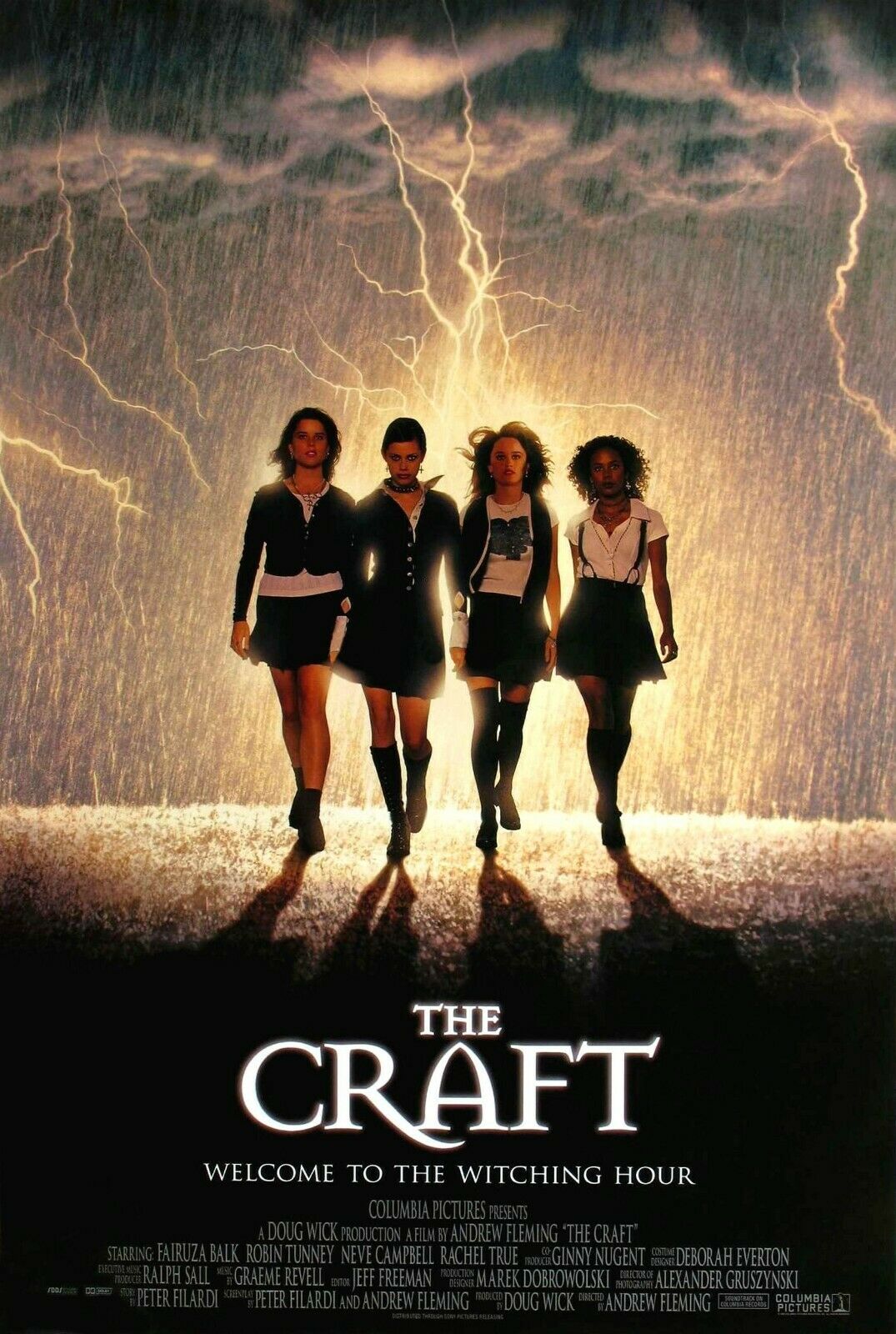
I love The Craft, but I haven’t actually watched it since the 90s. I was delighted to find it exactly as I remember it – fucking awesome.
My clearest memory was of my deep lesbian devotion to goth queen Nancy, played by Fairuza Balk. Tellingly, I had completely forgotten Skeet Ulrich was even in this movie.
It’s the classic teenage story of finding a place of belonging amongst outsiders, only to realise that even there happiness is precarious. Sarah shows up at a new school, not knowing who to trust, and is immediately preyed upon by misogynistic pieces of shit. Friendship circles are a matter of survival, even though they are, especially in the case of female groups, frequently the subject of disdain. When Sarah is taken in by the coven, she is protected, valued and given a place to belong. They have her back, and support her wants, and through the metaphor of magic, have a transformative impact on her.
That feeling of first friendship, of friendship in a hostile environment like high school, feels so important and vital, it feels far too meaningful to fall apart over trivial shit. And yet it does. Those bonds can break and it can happen so fast. The Craft takes its entire first hour to build the relationship between these girls, and then it turns within a scene or two. Nancy’s hunger for power, once challenged, rebounds with such ferocity that those who had once protected Sarah against harm become the cause of it. They use everything they know about her, every way in which she was vulnerable to them, to try to destroy her.
And on rewatch, I like how much of it is not explicitly shown to be magical. Obviously you watch The Craft, you come away thinking of the floating, the glamours, the bursting through windows. But so much of what they see as proof of their powers is actually open to interpretation. The guy getting hit by the car when he chases Sarah into the road, the alight of butterflies in the tree around their ritual, the beaching of the sharks. The film is very explicit that their magic is real, but how easily this could be replicated among lassies who read ‘signs’ in every little thing, and see any likely outcome as a manifestation of their will. The characters all attend a Catholic high school, and thus are likely to expect consequences for their dabbling in magic, and not surprised to see it confirmed. I remember having religious friends at that age who were fretful about having used playing cards to read fortunes, something that worried me about as much as playing gin rummy.
The Craft remains such a good film because both its portrayal of teenage female friendship and experience of magic in modernity are so identifiable. So do the issues that cause the girls to be outsiders, the importance placed on appearance and beauty, mental illness and suicidal feelings, racism, class, addiction, and sexual violence.
I also felt sorry for Nancy in this film. Although ultimately ending framed as the villain, by my score she kills two rapists in this movie, Chris who we see try to rape Sarah, and Nancy’s step-father who it’s implied has been at her. Neither of which I really feel inclined to consider crimes to be honest. It’s Chris’s death that is shown as her point of no return into bad guy territory, but I’m still kinda on her side, because fuck that guy. Sarah’s like, “I think he was sweet deep down”, and it’s like, how deep? When he tried to ruin the lives of lassies in his school by branding them as sluts, when he passed on sexually transmitted diseases, or when he tried to rape you? How much are you willing to overlook for the sake of a pretty face? I think Nancy has the right on this one.
Throughout the film, Nancy is shown as hungry for power, it is the blessing she asks for from the ritual where everyone else asks for solutions to their life’s problems. You see her living in poverty, with her mum a drunk and her step-dad making sexually predatory comments about her, and you understand why those seem like they don’t have a simple solution you can just wish for, when you read the implication of her interaction with her step-father you understand why powerlessness is her greatest fear. Her revelling in power for its own sake is what is shown as her downfall, but watching it, all I could think was how she considers herself to have been protecting Sarah by killing Chris, to be protecting her coven. And it is Sarah that betrays Nancy, with the binding spell, to try to reduce her once again to powerlessness in the face of her enemies. When she finally turns on Sarah and encourages her to take her own life, her words are so telling. “Pathetic,” she spits. “Weak,” she reviles her. Even at her worst, she seems more tragic than villainous.
So good to see a 90s classic again and find it just as great as I remembered.